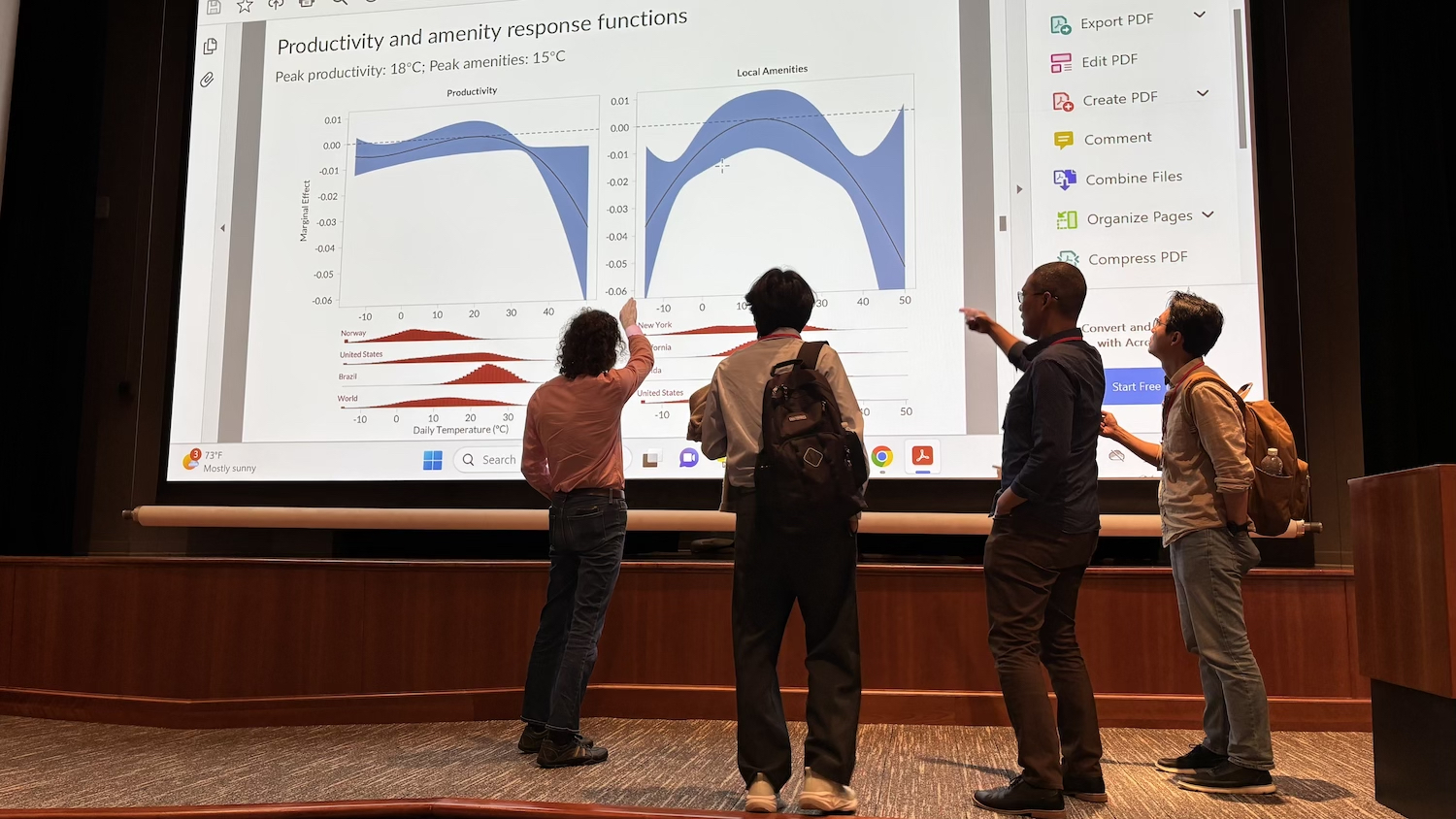By Stephanie Policastro
What does equity mean to me? That was the question that NC State faculty, staff and students addressed at the university’s inaugural Equity Research Symposium.
Held at Talley Student Union and streamed online the event featured a series of presentations, lighting sessions, round table discussions and a keynote address by Raj Chetty, William A. Ackman Professor of Economics at Harvard University and Director of Opportunity Insights – all focused on issues related to equity and what it means from a research perspective.
Poole College proudly sponsored the event, and throughout the day, seven faculty members presented their equity-focused and equity-relevant research. The following is a brief overview of some participating faculty and key findings from their groundbreaking work.

Bill Rand, executive director of the Business Analytics and AI Initiative and associate professor of marketing
Algorithmic Fairness, Service Failure and The Network Dynamics of Social Activism
Algorithms are increasingly making decisions about every aspect of our life – from what jobs we see ads for to what promotional offers global brands make to us, but many of these algorithms are biased against minorities, and so far, regulation has simply stated that algorithms should not be biased but provides no way to check to see if this is the case.
As one of the first papers to address the consumer reaction to the use of biased algorithms in the context of customer service, Rand and his team find that without an external auditor of algorithms, it is possible for a firm that uses a discriminatory algorithm to “hide” among firms that are just bad at making customer service decisions. Their research also shows that all firms should desire the establishment of an AI Watchdog.

Melinda Sandler Morrill, professor of economics and NBER research associate
The Attraction of Magnet Schools: Evidence from Embedded Lotteries in School Assignment
Magnet schools are widely celebrated as promoting socioeconomic balance and providing innovative curricula, but evaluation is particularly challenging due to two types of selection: students choose to apply and schools choose which students attend.
In this study, Morrill and her colleagues implemented a new method that allowed them to identify the causal effect of attending a magnet school. They find suggestive evidence that magnet school attendance increases test scores, as well as more robust evidence that magnet attendance increases student engagement. Specifically, for the population of students randomly assigned to magnet schools, the effect of attending a magnet school is, on average, a 65% lower absenteeism rate.

Nathan Goldman, assistant professor of accounting
The Inherent Conflict Between Progressive Tax Rates and Income Inequality: Lessons from COVID-19 Restrictions
As many across the nation continue to face financial struggles resulting from the COVID-19 pandemic, this important research helps to shed light on how the COVID-19 state tax collection puzzle can be answered as a function of income tax rate progression and income inequality.
Through his research, Goldman discovered that progressive tax rates are positively associated with income tax collections, that income inequality (via COVID-19 restrictions) significantly increased income tax collections in states with higher income tax rate progression, and finally, that states with more progressive income tax rate structures instituted greater COVID-19 related restrictions.
Corporate Commitment to Diversity, Equity and Inclusion and Employee Productivity
In this study, Goldman and his research team provide some of the first evidence of the consequences of explicitly committing to Diversity, Equity and Inclusion (DEI) at the employee level, as well as how these commitments affect employee outcomes.
The research shows that more than 80% of firms in their sample explicitly commit to DEI in the human capital disclosures in their financial statements, and these firms tend to be those who are younger and growing. The study also finds that firms who commit to DEI have more productive employees than those do not. These effects are mitigated among firms that are financially constrained, suggesting a disingenuous commitment may have alternative effects.

Carissa Malone, assistant professor of accounting
Diversity, Equity and Inclusion in the Auditing Profession: Individual Auditor Experiences and Contributions
How can individuals contribute to workplace diversity, equity and inclusion (DEI) in the auditing environment? That’s the question that Malone and her colleagues addressed in their research to better understand the specific experiences of diverse auditors, which could significantly affect retention and the contributions these auditors can make at their firms.
First and foremost, the study finds that the need for emotional safety is paramount in the retention and progression of diverse auditors’ careers. Additionally, by applying Maslow’s framework to understand retention outcomes, the team aims to better understand retention outcomes in audit firms that grounds this understanding in meeting employees’ psychological needs. Ultimately, the study suggests some strengths and potential weaknesses in current audit firm diversity, equity and inclusion initiatives.
The 2022 Research Equity Symposium was sponsored by the deans of all of NC State’s colleges and divisions, the Graduate School and the Division of Academic and Student Affairs, in collaboration with the Office for Institutional Equity and Diversity, the Office of Research and Innovation and the Research Leadership Academy.
- Categories:
- Series:



